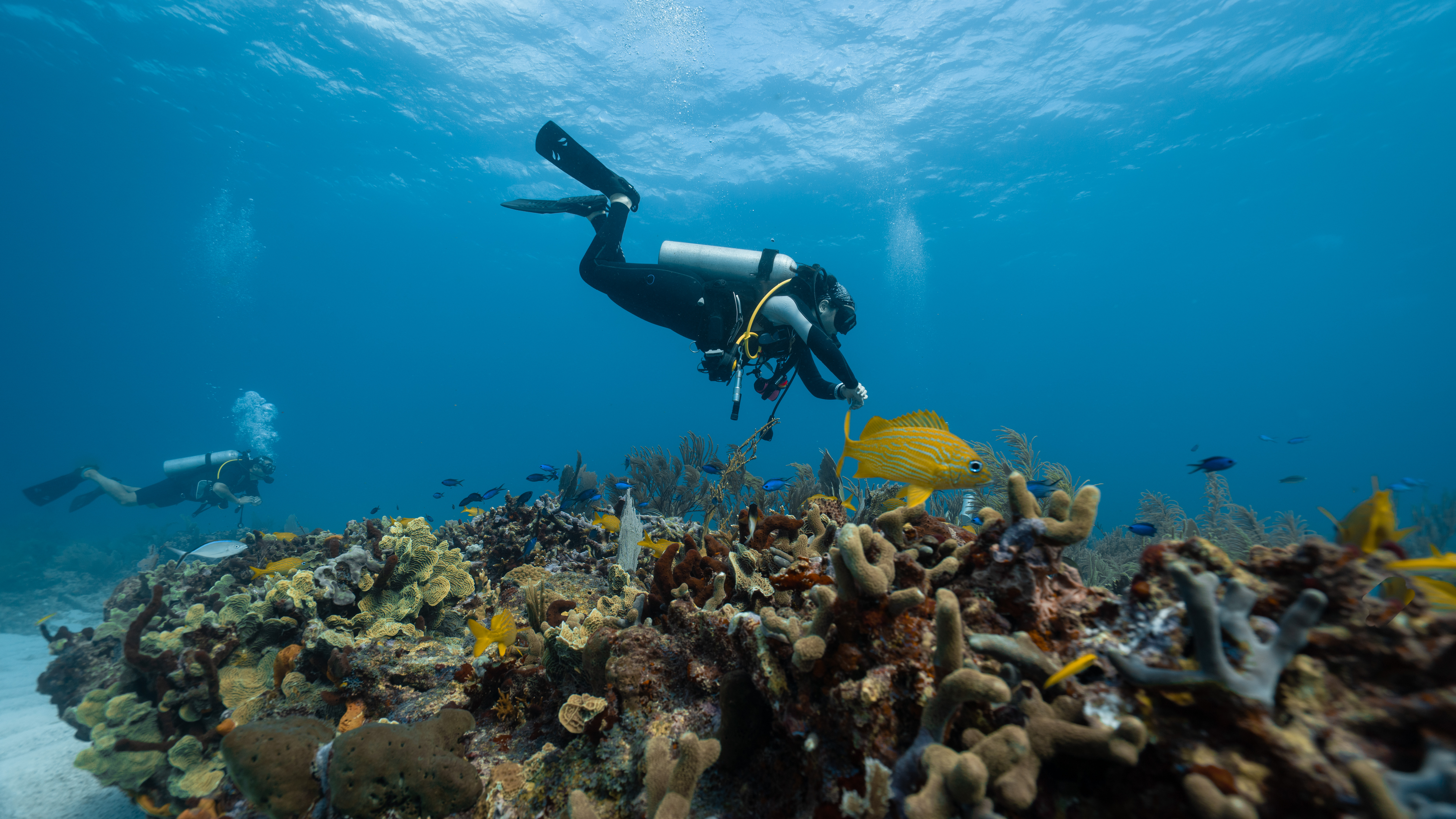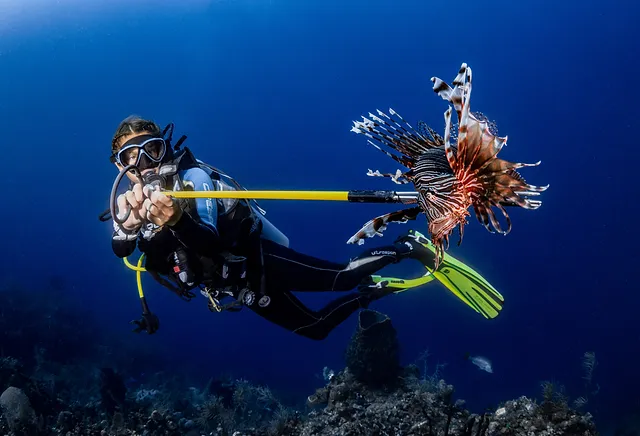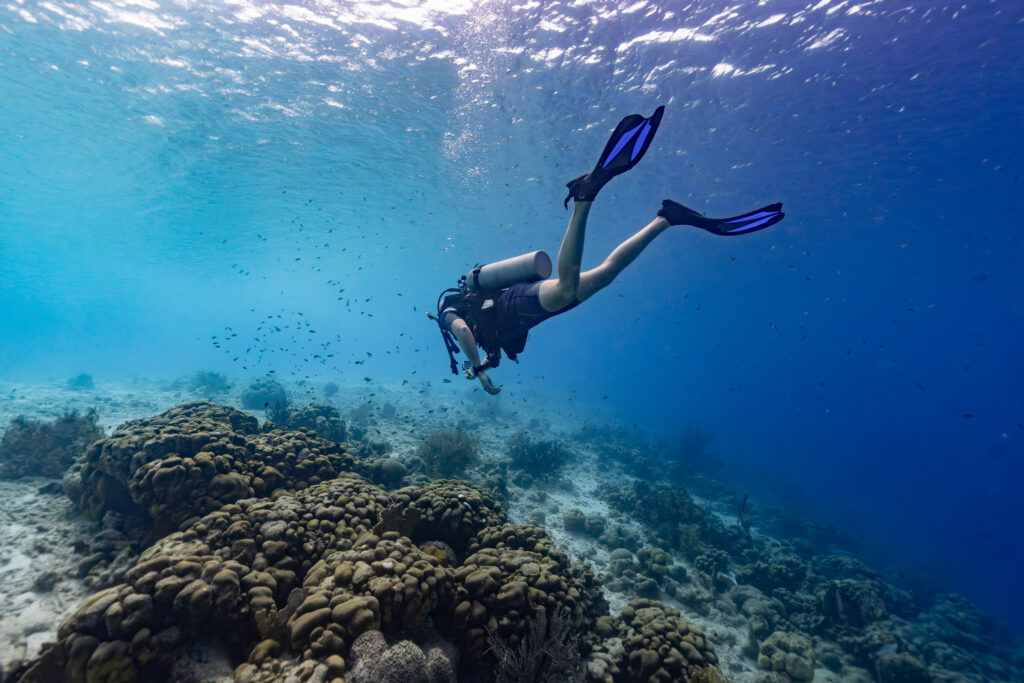Coral reefs are under constant threat from human impacts, and sometimes destruction comes from the people who spend the most time underwater enjoying these beautiful ecosystems up close. For many years, the CORAL team has worked to more deeply understand the tourism impacts from scuba diving and snorkeling so we can use our learnings to inform people across the globe about best practices.
Our latest study, published in Marine Policy journal, focused on scuba diving in Roatan, Honduras. We looked at the number of divers that different sites can sustainably handle (known as carrying capacity) and how diver behavior affects the reefs. We paid special attention to certification levels and the use of lionfish spears, which are used to control invasive species. After monitoring 180 divers across several sites, we found big differences in how many divers each site could handle—some sites could support 13,000 more divers per year than others.
So, what does this mean for reef conservation?
Dr. Antonella Rivera, one of our researchers, explains: “This study shows how important it is to understand how many divers each reef can handle to avoid damaging it. Many factors affect this, including the skill level of divers and how they use spearfishing tools. To protect reefs, we need to regularly assess and adjust these numbers and use this information to guide our decisions.”

Key Findings
Carrying Capacity Varies by Site
The study highlighted substantial variation in the number of divers that different sites could sustainably support. This finding tells a story of the importance of site-specific management strategies to prevent overuse and degradation.
Diver Behavior Directly Impacts the Reef
Divers’ behaviors, especially those related to their certification levels, significantly affect the physical integrity of the reefs. Less experienced divers tend to cause more damage, often unintentionally, due to poor buoyancy control and lack of awareness.
Lionfish Spearfishing Needs Fine Tuning
While lionfish, an invasive species, pose a serious threat to Caribbean reefs, the study suggests that the method of spearfishing, if not properly managed, can inadvertently harm the coral reefs. This calls for a reassessment of current spearfishing practices and the implementation of more controlled and informed methods.

The Importance of Education and Management
The findings from Roatan indicate a clear need for educational programs, especially for newer divers. Workshops and courses focusing on the ecological impacts of diving can significantly mitigate damage to coral reefs. Educating divers about proper buoyancy control, the importance of not touching corals, and the careful use of equipment can lead to more sustainable diving practices.
Additionally, the study emphasizes the importance of incorporating carrying capacity assessments into marine tourism management. The way CORAL incorporates this into our work is by ensuring Destination Management Organizations (DMOs) use these results and replicate these types of assessments to inform their local management strategies. By regularly monitoring and adjusting the number of divers allowed at specific sites, based on the health and resilience of the reefs, long-term sustainability can be achieved.

A Path Forward
The study conducted in Roatan offers valuable insights into the complex relationship between tourism and coral reef health. It’s also a clear example of CORAL’s strategies.
We focus on actionable science – deepening the collective understanding of the many aspects of coral reef conservation. By understanding the carrying capacities of different sites and the impacts of diver behavior, we can develop more effective management practices. Education and sustainable practices are key to preserving these vital ecosystems for future generations.
Roatan’s reefs, like many around the world, require our attention and care to thrive amidst growing tourism pressures. Through informed and adaptive management, we can ensure that the beauty and biodiversity of these underwater worlds remain intact.

